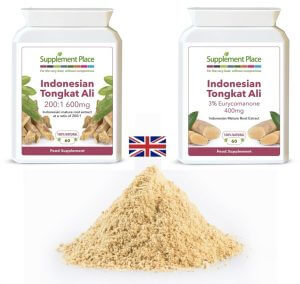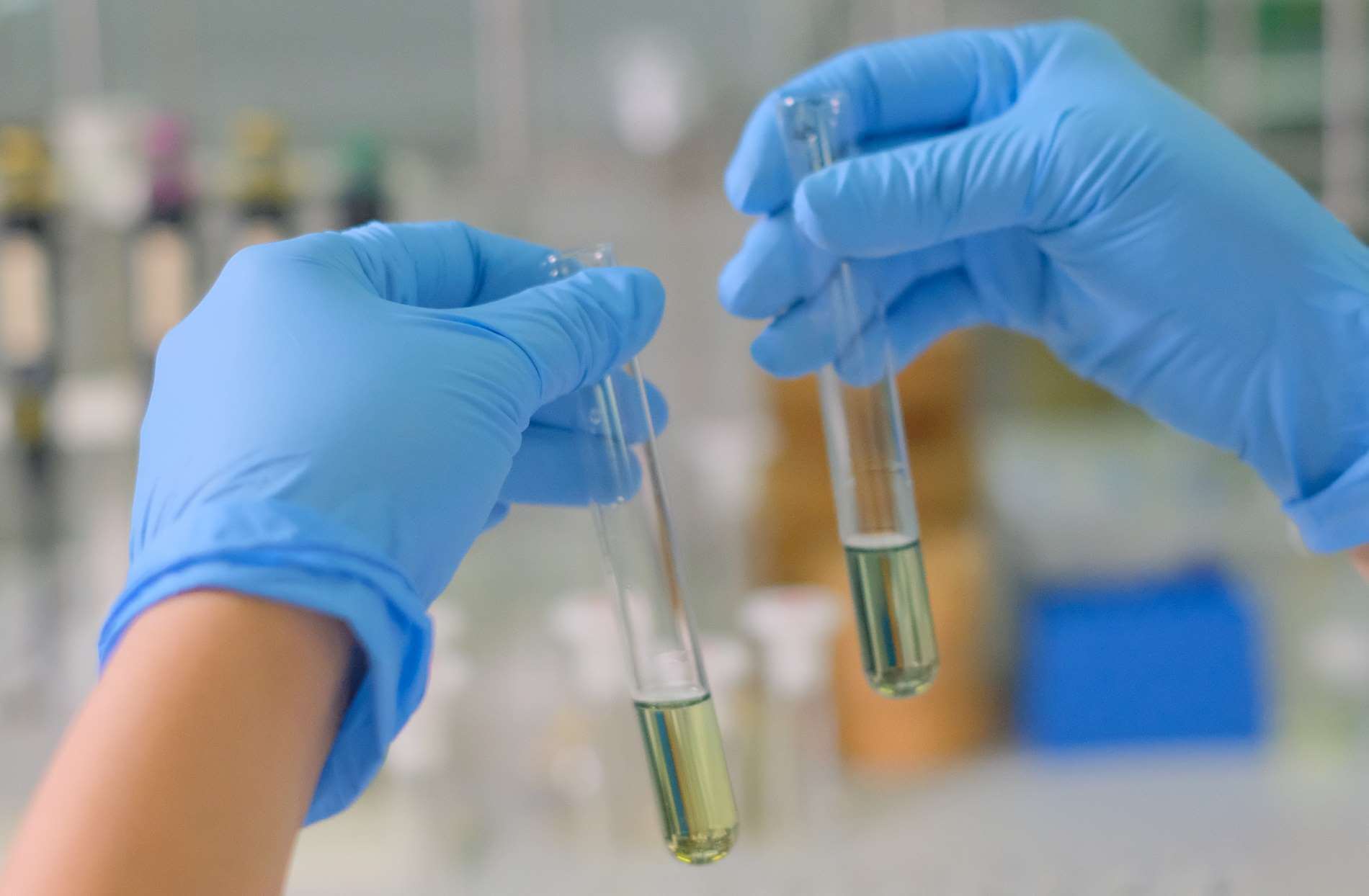

Dr. Andrew Huberman considers Tongkat Ali generally safe when used appropriately, emphasizing the importance of proper dosing, monitoring, and timing to minimize potential side effects. However, there are concerns about Tongkat Ali’s safety – for instance, how much should I take daily, whats the safety limit and whether taking it daily or long-term affects health.
This is a safety review of Tongkat Ali as a dietary supplement or when taking it as a novel food based on existing toxicology, safety-related research studies and opinion by the European Food and Safety Authority (EFSA). We also interview long term Tongkat Ali users to identify any potential side effects that they have to live with, or whether it has affected their health.
It has been more than 20 years since Tongkat Ali’s made its world debut in America, with more than 300 million capsules sold across 30 countries. We estimate more than 100 million people have consumed Tongkat Ali to date – in various forms such as herbal beverages, capsules in dietary supplements or in loose powder extract.
“Tongkat Ali is generally safe”, said American Medicine Hunter Chris Kilham to ABC News after investigating Tongkat Ali production in greater details. Meanwhile, the Heathline reported that Tongkat Ali appears to be safe for adults, although the safety of long-term use was never really properly researched.
Since the first discovery of Tongkat Ali (Eurycoma Longifolia) as a medicinal herb by British William Jack in 1822, there have been 3 reported cases of patients worldwide of acute and severe side effects from consuming Tongkat Ali, suggesting the risks is relatively low.
Whilst the safety risk is relatively low, Tongkat Ali may not be safe for people who are diagnosed with life-threatening medical conditions, or those consuming Tongkat Ali supplements that are not lab-tested or clinically-tested for toxicity.
The latest reported case of a 47-year-old male hospitalized due to acute liver injuries after taking Tongkat Ali warrants a thorough look at the safety and toxicity checks by brands with exaggerated health claims and those using imported 200:1 Tongkat Ali extracts from China.
Neuroscientist Dr. Andrew Huberman suggests a daily intake of 200 to 600 milligrams, advising individuals to start at the lower end to assess personal tolerance and effectiveness. But before even taking one, consumers should check if the Tongkat Ali supplements are clinically tested to ensure they are buying quality extract that is safe from impurities, toxicity and other additives.
Against the backdrop of millions of users who have taken Tongkat Ali in various forms (capsules, extract, raw slices or even drinks) in the last decade and the low number of reported cases, this herb is reported to be relatively safe for long-term consumption as long as you consume within recommended dosage, typically between 200mg to 400mg daily, but not exceeding 1,000mg per day.
“Although there are no reported deaths, it does not mean that all Tongkat Ali supplements are safe for human consumption,” said Dr. Zamir Hillman, a board-certified doctor who specializes in health optimization for his patients.
“Always go for clinically tested Tongkat Ali using standardized hot water extract to minimize any risks associated with kidney diseases, liver or even DNA cell damage,” said a nutritionist and former GNC scientist based in Washington.
Currently, only few Tongkat Ali supplements have been thoroughly lab tested or clinically tested to meet safety standards. Heavy metal tests, microbial and adulterant tests conducted by 3rd party EUROFINS meets the minimum dietary safety standards which reduces the health risks when taking herbal supplements.
As Tongkat Ali is classified as a dietary supplement and not regulated by FDA, users are warned against consuming Tongkat Ali in high doses, or those which are not 3rd party lab-tested by reputable organizations such as EUROFINS as it may contain adulterants, high heavy metal content (eg: mercury, arsenic, lead) and other impurities that may affect your health.
Senior Head Scientist Dr. Annie George from Biotropics Malaysia said “Tongkat Ali supplements using standardized hot water extract are amongst the few types of Tongkat Ali that went through comprehensive safety reviews, assessments and tests in the last decade”.
Standardized hot water Tongkat Ali extract went a thorough toxicity studies and further scrutiny on its safety by health authorities in the last decade as opposed to 200:1 extracts and non-standardized ethanol extracts. The risks of kidney, liver damage or DNA damage is relatively low.
The implication of the recent development to the safety aspect of Tongkat Ali are two folds:
Side Effects & Your Safety
You should consider the severity of the side effects when taking Tongkat Ali as one of your safety measures.
While some side effects are acute or temporary, negative side effects such as vomiting, consistent headaches, cramps or diarrhea could indicate other serious problems that are caused by toxicity from the impurities.
Here is a list of Tongkat Ali side effects for your reference.
Our findings by the EFSA outlined in this article may be used as a guide to assess and address any safety concerns related to Tongkat Ali consumption as a dietary supplement.
Firstly, the EFSA Panel concludes that Tongkat Ali was not clastogenic or aneugenic based on in-vitro animal study based on 500mg/kg of bodyweight. However, in another in-vitro animal study, the EFSA researchers observed a potential DNA damage on the stomach tissue of an animal at high dose of 2,000 mg/kg of bodyweight.
The EFSA safety findings on animal study can be extrapolated to assess the risks to humans when taking Tongkat Ali.
Based on the EFSA study and adjusting to the Human Equivalent Dose (HED) of 322 mg/kg of human bodyweight, consuming a high dose of 19,354 mg of Tongkat Ali in a single intake may induce potential DNA tissue damage or genotoxic effects on human adult weighing 60kg.
Tongkat Ali may increase the risk of DNA damage at high dose of 19,354 mg in a single intake. But no one in the right mind would consume that excessive amount. There is far lower risks should you decide to take 1,935mg of Tongkat Ali, although it is generally not recommended to take higher dose for a prolonged period.
In conclusion, EFSA’s assessment point to the safety implications of humans consuming Tongkat Ali in high doses, and those taking exceeding 2,000 mg/kg animal bodyweight (or 19,354 mg in humans weighing 60 kg) in a single dose may pose higher risks to DNA damage. In reality, the risks are lower if you are taking Tongkat Ali in moderate amounts as the acceptable daily intake is between 200mg to 400mg.
After considering the safety factor of 10, the safety limit of Tongkat Ali extract is reduced to 1,935 mg in a single dose, indicating that it may not be safe if you are consuming high doses of Tongkat Ali daily.
However, the safety assessment of Tongkat Ali is rather limited and its effects on DNA stomach tissue damage by the EFSA Panel using genotoxicity assessment was based on a case involving one rat.
Furthermore, researchers found no implications on cell death or duodenal tissues caused by Tongkat Ali consumption in the same animal study. This suggests the DNA-damage caused by Tongkat Ali is potentially an isolated case and lead to an inconclusive evidence that warrants further investigation and assessment based on a large sample size.
The EFSA study on Tongkat Ali found no histological damage in the duodenal tissue in the follow-up experiment, and there were no associated signs of cytotoxicity or cell death in the stomach and duodenal tissues in the main experiment.
To establish a safety guide to answer “what is the maximum Tongkat Ali should I take per day”, we analyzed the maximum allowable dosage based on safety guidance adopted by pharmaceutical companies by taking into consideration a safety factor (from 1 – 10), a method commonly used when transitioning from preclinical (animal) studies to human clinical trials.
After converting the toxicity limit of Tongkat Ali (Eurycoma Longifolia) at 2,000 mg/kg of animal body weight taken from EFSA’s safety risk assessment to the Human Equivalent Dose (HED), our analysis suggests that standardized Tongkat Ali extract is considered safe for adults weighing 60kg (132 lbs) is 1,935 mg in a single dose after incorporating safety factor of 10 (i.e 19,355 mg / 10).
Our analysis showed that Tongkat Ali is well tolerated, non-dangerous, non-toxic and possibly safe on dose of up to 3,225 mg for adult weighing 100kg (220 lbs) and if you weigh less than 60kg (132 lbs), the maximum Tongkat Ali dose is between 1,290mg to 1,612mg in a single day.
Human Weight
| Maximum Human Equivalent Dose (HED) of Tongkat Ali
| Maximum Human Equivalent Dose (HED) of Tongkat Ali with a safety factor of 10
|
40 kg | 12,903 mg | 1,290 mg |
50 kg | 16,129 mg | 1,612 mg |
60 kg | 19,355 mg | 1,935 mg |
70 kg | 22,581 mg | 2,258 mg |
80 kg | 25,806 mg | 2,580 mg |
100 kg | 32,258 mg | 3,225 mg |
120 kg | 38,710 mg | 3,871 mg |
Note: The above table shows the maximum Tongkat Ali dose that is generally accepted as safe for human consumption based on EFSA’s safety / toxicity study. This amount is based on a single dose when consumed in one single intake. For safety reasons, we do not recommend you take this amount or a high dose presented in the table on daily basis.
Another safety concern is the toxicity of Tongkat Ali. So we looked at toxicity-focused studies to understand the severity, damage and risk of this herb.
Looking back at previous research, acute and sub-acute toxicity studies on Tongkat Ali were established as early as 2011, most in-vitro and in-vivo animal studies. A study published in the International Journal of Pharmacology found no significant changes in biochemical and haematological parameters while thin blood films were found as “normal”.
The same study showed no pathological changes in the testes and kidneys. This study shows the EL extract does not cause acute toxicity.
In another 13-week toxicity and genotoxicity study published in the Evidence Based Complementary Medicine Journal showed that Tongkat Ali (Eurycoma Longifolia) at 1,200 mg/kg and 2,000 mg/kg animal bodyweight produced no adverse effects on the body weight, hematology, serum biochemistry, urinalysis, macropathology, or histopathology. The study further concluded that the acceptable daily intake (ADI) of Tongkat Ali is 1,200 mg per day for adult weighing 60kg.
According to health experts, 200mg to 400mg of Tongkat Ali may be an acceptable daily intake which is far below the safety limit of 1,200 mg per day based on existing toxicity studies.
However, the safety tolerance of Tongkat Ali extract is dose-dependent and the results of the heavy metal, microbial and purity tests should be taken into consideration when defining the maximum safety limit of how much should you take daily.
If you are diagnosed with past history of kidney or liver diseases, taking Tongkat Ali may increase the risks of liver injuries. Thus, Tongkat Ali consumption should be limited to less than 200mg daily.
To meet the required safety standards, third party tests are conducted to that ensure that Tongkat Ali extract contains minerals that are below toxicity limits. Almost 95% third-party lab tested Tongkat Ali supplements showed no traces of arsenic, mercury, lead and cadmium in quantities that are deemed risky, toxic or exceed FDA safety limits. However, these inherent constituents often exist in small quantities far lower than the allowable safety limits set by FDA, making it safe when consumed long term.
The fear of high mercury levels found in Tongkat Ali is no longer a safety concern in recent years due to better sourcing strategies, pesticide-free harvesting techniques, and standardization. However, for maximum safety, it is best to buy third party lab tested Tongkat Ali from reputable organizations such as EUROFINS, SGS, rather than from smaller outfit such as Informed Sports.
Currently, EFSA report doesn’t show any reported risks or toxicity over the long-term safety use of Tongkat Ali at lower dosages below 1,900mg. Our assessment showed the maximum allowable dosage of 1,000 mg may be used as a safe daily threshold limit (max) if you plan to use it regularly for more than a year.
Due to the lack of established study on the long-term safety of Tongkat Ali usage, we investigated active adults who have used Tongkat Ali daily (within a dose of 200mg to 600mg) for more than a year. Our findings showed no form of adverse effects, symptoms on kidney or liver issues, cardiovascular health, or other severe side effects that they have to endure.
We spoke to recreational and professional athletes who have taken Tongkat Ali for more than 12 months to get first-hand experience on any reported risks, side effects.
Long-term Tongkat Ali user 38-year-old Alimin Husni took 400mg Tongkat Ali daily for more than 5 years without reported side effects, or health issues. He used it daily to enhance his running endurance, coupled with weight training 2 times a week.
“After 5 years of using Tongkat Ali and switched to a more potent standardized Tongkat Ali extract, my health and athletic performance have improved significantly” said Alimin, who recently completed 25k trail run in UTMB Chiang Mai, Thailand in 2024.
"Safely to say, I have not experienced any side effects from taking Tongkat Ali almost daily for more than 5 years. I limit my daily intake to 400mg but I do take 1,000mg occassionally"

In another observation, 10-time Mr. Olympia World Champion Sazali Samad who took standardized Tongkat Ali extract daily (in high doses) for 5 years also showed no signs of slowing down at the age of 50, with no reported issues of kidney, liver, heart or cancer throughout his experience with Tongkat Ali.
Our analysis revealed that the safety risk of Tongkat Ali causing toxicity or severe damage to health is less than 0.0001% based on the number of reported cases and results of toxicity studies. The level of risk is extremely low compared to the total number of people who have consumed Tongkat Ali, with more than 300 million Tongkat Ali capsules consumed by humans in the last 10 years in 35 countries.

We also did a short-term assessment and observation on mature adults (46-year-old men) and a group of athletes who took Tongkat Ali for the first time at the prescribed dose of 200mg – 400mg daily as part of their training plan.
Our analysis showed no evidence of reported acute side effects from a group of recreational runners (average age of 40 years, n = 67 people) who took Tongkat Ali within a 16 to 20-week period.
“I felt my stamina has improved, with better recovery and sleep time”, said Syed Shazli, founder and captain of a running club in Malaysia. He took 200mg to 400mg Tongkat Ali daily for 16 weeks as part of his marathon training plan, achieving a new record of sub 4-hour in his recent race in Berlin Marathon.

Most toxicity and safety studies were conducted on Yelllow Tongkat Ali (Eurycoma Longifolia), indicating that this type of Tongkat Ali is relatively safe when consumed in low to moderate dosages. Other sub-species such as Black Tongkat Ali and Red Tongkat Ali are generally not safe for short-term or long-term use as the toxicity study, safety limit and Acceptable Daily Intake (ADI) have not been well established.
According to health experts, clinically-tested standardized Tongkat Ali hot water extract is relatively safer than 200:1 Tongkat Ali extract as it is used in clinical trials and the side effects from patients (if any) are well documented in the published papers and / or in toxicity studies.
“Tongkat Ali hot water root extract is the one you should go for” said urologist Dr. Rena Malik based in Los Angeles.
“If safety is your priority, choose clinically-tested Tongkat Ali supplements or standardized Tongkat Ali hot water extract” said a certified nutritionist in Florida, adding that it contains standardized bioactive compounds such as eurycomanone, eurypeptides and glycosaponin content that well optimized for long term safety, even at high doses.
Based on our analysis and experts’ interviews, it is safer to consume 3rd party lab-tested Tongkat Ali that uses standardized hot water extract, because of its higher safety limit of 3,000 mg/kg of animal body weight – which is equivalent to 32,000 mg of Human Equivalent Dose (HED).
After adjusting to a safety factor of 10, we found that the acceptable daily intake for Tongkat Ali that is relatively safe for an adult (weighing 60kg) is approximately 1,930mg. But it does not mean one should take 1,930 mg daily.
It appears that the recommended dose of 200mg to 400mg daily dose of Tongkat Ali is way below the safety limit (of 1,930mg) as suggested in most studies including by Dr. Andrew Huberman himself. So therefore, we can safely conclude that provided you are taking pure Tongkat Ali root extract that is not adulterated, the 200mg to 400mg is an acceptable safety range that you can consume if you are taking it daily.
For recreational marathon runners and seasoned athletes, taking a higher dose of Tongkat Ali (of up to 1,000mg during competition / race day) is reported as beneficial for athletic performance – mainly to boost endurance, stamina and energy. According to functional health coaches, to ensure safety and optimal performance, taking a higher dose is advisable only during competition (or race day) and should be adjusted to a lower dose of 400mg to 600mg during training days.
Taking yellow Tongkat Ali that is standardized, pure, 3rd party lab-tested and in low doses (of below 400mg) may be considered relatively safe.
“Tongkat Ali market has reached maturity with elevated quality standards such as cGMP certifications, 3rd party lab tests and performance tests to ensure higher consumer confidence. This has weeded out underperforming and shady Tongkat Ali brands” said AKARALI CEO & Founder, Shahid Shayaa. He adds that dosage-optimized Tongkat Ali supplements which carry 200mg or 400mg per capsule is the one to go for.
You should not be worried if you are not taking other drugs or medications that may interact negatively with Tongkat Ali, or herbs such as Fadogia, Panax Ginseng in high doses.
You should worry if you have underlying medical conditions such as Chronic Kidneys Disease (CKD), chronic liver disease or life-threatening diseases such as cancer as taking Tongkat Ali may interact negatively with the existing treatment or worsen your conditions.
Based on EFSA’s findings, past toxicity studies and reported cases in other literatures, standardized hot water Tongkat Ali extract is relatively safe when consumed as a dietary supplement below 1,935 mg daily, or between 200mg to 400mg daily as long as it is 3rd party lab-tested.
Our safety findings and assessment may not be applicable in the case of non-standardized or 200:1 Tongkat Ali extracts, which warrants further investigations. The safety standards and dosage limits of non-standardized ethanol-based Tongkat Ali extracts including 500:1, 200:1 and 100:1 extracts have not been established, assessed and documented. Effectively, there is no conclusive evidence to suggest that it is safe when taken in high doses or over long term.
Consumers taking Indonesian Tongkat Ali extract may exercise more caution as there is no safety review conducted by reputable panels such as the European Food Safety Authority (EFSA) or independent lab tests by EUROFINS to assess the risks and impact to health, particularly DNA damage, tissue liver damage and long term impact on kidneys.

Alex Kua leads AKARALI’s Global Partnership Community to help athletes, sports communities, and thousand of others optimize their well-being through evidence-based research that enables them to make better informed decisions. His legal and business consulting background underpins the rigorous data-driven approach in his writing – from hours of interviews, real-world performance data, and firsthand experiences of real people – offering actionable insights that connects clinical research, emerging health trends, and real-world applications. He is also an experienced researcher in herbal nutrition, with years of deep technical knowledge on Tongkat Ali (Eurycoma longifolia), including quality standards, industry benchmarks, lab tests, clinical trials, and the use of natural herbs by collaborating with top scientists, herbal experts, and nutritionists. As part of the core team behind AKARALI’s knowledge portal, he empowers people worldwide to access the benefits of high-quality herbal nutrition in a way that is effective, sustainable, and safe. He is also an avid runner, with regular participation in local sports communities and running events.
Our articles are third party reviewed by our panel of experts and medical advisors to ensure the facts are accurate and credible. These are validated against multiple source references which include but not limited to research studies, peer-reviewed journals, pre-clinical studies, clinical tests and other credible publications.
Our panel of medical advisors and experts are highly experienced in their individual fields. However, they do not provide any medical advice or recommendations arising from content published in this article.
Disclaimer:
The content published on this website is for educational purposes and should not be viewed, read, or seen as a prescription or constitute any form of medical advice. We recommend you consult your nearest GP or doctors before consuming Tongkat Ali or any products which contain Tongkat Ali. For further information, kindly refer to our Frequently Asked Questions (FAQ) for more information.